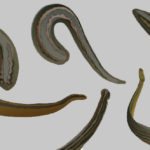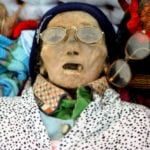 History
History  History
History  Health
Health 10 Everyday Activities That Secretly Alter Consciousness
 History
History Top 10 Historical Disasters Caused by Someone Calling in Sick
 Animals
Animals 10 New Shark Secrets That Recently Dropped
 Movies and TV
Movies and TV 10 Forgotten Realities of Early Live Television Broadcasts
 Technology
Technology 10 Stopgap Technologies That Became Industry Standards
 Weird Stuff
Weird Stuff 10 Wild Facts About Taxidermy That You Probably Didn’t Know
 Travel
Travel 10 Beautiful Travel Destinations (That Will Kill You)
 Miscellaneous
Miscellaneous 10 Modern Marriage Rituals Born from Corporate Branding
 Weird Stuff
Weird Stuff Ten Bizarre Visions of 2026 from Fiction
 History
History 10 “Modern” Problems with Surprising Historical Analogs
 Health
Health 10 Everyday Activities That Secretly Alter Consciousness
 History
History Top 10 Historical Disasters Caused by Someone Calling in Sick
Who's Behind Listverse?

Jamie Frater
Head Editor
Jamie founded Listverse due to an insatiable desire to share fascinating, obscure, and bizarre facts. He has been a guest speaker on numerous national radio and television stations and is a five time published author.
More About Us Animals
Animals 10 New Shark Secrets That Recently Dropped
 Movies and TV
Movies and TV 10 Forgotten Realities of Early Live Television Broadcasts
 Technology
Technology 10 Stopgap Technologies That Became Industry Standards
 Weird Stuff
Weird Stuff 10 Wild Facts About Taxidermy That You Probably Didn’t Know
 Travel
Travel 10 Beautiful Travel Destinations (That Will Kill You)
 Miscellaneous
Miscellaneous 10 Modern Marriage Rituals Born from Corporate Branding
 Weird Stuff
Weird Stuff Ten Bizarre Visions of 2026 from Fiction
10 Odd Medical Practices Of The 20th Century
Medicine throughout the ages has granted us so much to be thankful for. Very rarely do any of us wake up having to fear smallpox or some of the deadliest flu viruses. Syphilis is no longer a death sentence, a bacterial infection guaranteed to devour at us from the inside, consuming our brains as it feeds pervasively throughout us, bringing us a slow, miserable, painful, and agonizing death. We simply see a doctor and take some antibiotics until it goes away a few weeks later. When we have serious injuries or need surgeries, we can pretty safely rest assured that no infection will kill us after seeping into our blood.
Along the course of history, there has been no shortage of strange, bizarre, and macabre medical practices to horrify us to this day. Ancient Romans thought it to be medically beneficial to drink the blood of gladiators, and a few centuries back, tobacco smoke enemas were all the rage. But even the 1900s gave us no shortage of things we can hardly believe were considered medicine. Our barbaric ways of supposed healing aren’t all far back in ancient history; some of them have been practiced by completely sane individuals even in modern times. From frontal lobotomies to drinking radium, here’s a list of ten of the most bizarre medical practices employed during the 20th century. Some of them are still going in the 21st century.
10 Lobotomies
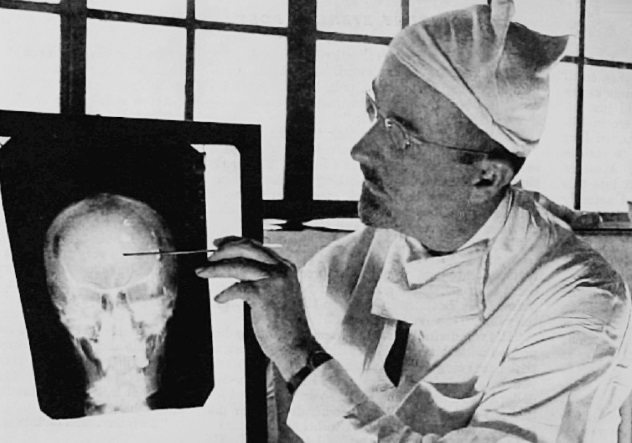
Probably the most well-known strange medical practice of the past 100 years is the frontal lobotomy. While many know it simply as a quite literally mind-numbing practice that didn’t serve much in the ways of actually healing patients, the lobotomy has a long, rich history and was extremely popular in its heyday in the 1900s. Actually, depending on perspective, lobotomies were considerably effective compared to other options, albeit ethically questionable. To those insane with delusional paranoia who constantly perceive themselves as suffering, a near-coma state of sedation might be a worthwhile trade-off. Seizures and severe personality changes, however, were only two of the many side effects which ended up being some pretty disturbing drawbacks to the practice. By and large, many who received a lobotomy ended up spending the rest of their (often shortened) lives in a vegetative, lethargic state; some patients would barely move or never speak again.
What originated as a complex procedure of cutting a hole into the skull and delivering ethanol into the brain ended up becoming a bit of a circus sideshow by the time the ice pick lobotomy came around. One infamous lobotomist, Walter Freeman (pictured above), ended up performing between 2,500 and 5,000 lobotomies single-handedly; he even did 25 of them in a single afternoon, lining up a row of hospital beds filled with patients and, in front of cameras and an audience, went down the line and lobotomized everyone in the room.[1] While its effects are extreme, and complete mental dullness is an indisputable result of the lobotomy, today, we arguably use many medications for the same result. The real question at hand for the bizarre practice is whether an absolutely blunted mental state is considered preferable to a state of total psychosis.
9 Primal Therapy

The concept sounds straight out of a surrealist art painting. Primal therapy is the practice where a patient, in the company of their psychiatric care physician, reenact, relive, or otherwise attempt to “reexperience” a traumatic or life-changing event again through memory and vent about it in a “normal” or positive way. And by “normal,” we mean by screaming their heads off, as loudly, angrily, furiously, and emphatically as they can possibly muster, hence the treatment’s alternate name of “primal scream therapy.” The concept is to experience and express raw emotions, without the complex and windy need for words. Just scream instead.[2]
Primal therapy generally rejects the orthodoxy of traditional psychotherapy, feeling that we need to tap into the core of our raw emotions. It’s somewhere in between therapy and art. Practitioners of scream therapy have their patients not only scream at top of their lungs but sometimes hit punching bags or roll around on the floor in an attempt to let out pent-up, raw, pure, unadulterated emotions. This was popularized in the artistic days of the 1960s and 1970s, though it has largely lost traction as a legitimate therapy.
8 Smash Therapy
For me, the Offspring’s 1994 hit record Smash is therapy in and of itself, but for the rest of the world, smash therapy has nothing to do with mid-1990s punk rock; it has to do with literally breaking things. Related to primal therapy, smash therapy is what would happen if you took primal therapy, mixed in some pent-up rage, and then put the pissed off individual in front of a bunch of objects and simply told them, “Break everything.”
Smash therapy establishments operate outside of the traditional medical system and literature, but they’re popping up all over the United States and elsewhere. Website Smashtherapy.ca has the following to say about its services offered: “Some people just want to watch the world burn. While we can’t burn anything here (yet), we offer the next best thing: smashing stuff into tiny little pieces.”
Smash therapy establishments, sometimes referred to as “anger rooms” or “rage rooms” are all the rage these days, but it’s doubtful they have any real, lasting therapeutic value outside of some novelty and a good time that could easily be found elsewhere.[3]
7 Vin Mariani
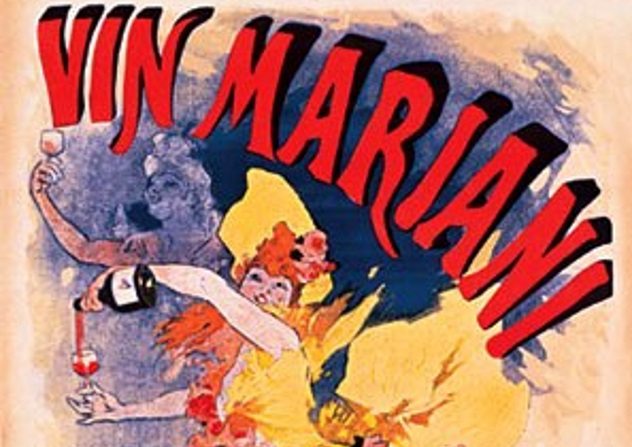
Vin Mariani was a tonic wine, basically a French red Bordeaux with a twist: It was mixed with cocaine. It was prescribed for men who were overworked, so it was basically the original gangster of energy drinks. Invented and debuted in 1863, it continued into the 1900s as a form of nervous system stimulant, but it had a particularly high dose of cocaine.
The idea was to drink two or three glasses throughout the day to maintain a healthy nervous system.[4] This actually sounds delicious, and it no doubt must have worked for its intended purpose. Though with the strong side effects of drug addiction and alcoholism, it can hardly be called medicine.
6 Methamphetamine

What most people don’t realize is that methamphetamine is still listed as a prescription drug in the United States, and it can be prescribed and purchased even in pill form today, right now.[5] Dexosyn is actual, legitimate meth. In the United States, meth is listed as a Schedule II drug, meaning it has legitimate medical uses, but there’s a high potential for abuse. Crystal meth is twice as potent as the run-of-the-mill amphetamine formerly available up until the 1960s in many places. The 1980s saw the birth and explosion of this extremely potent form of methamphetamine.
While it may astonish you that methamphetamine can be prescribed, it should be noted that there many serious diseases and disorders out there which such a powerful stimulant may be necessary to treat, and that judgement call is up to a patient and their doctor. At the same time, in a world where many places consider marijuana a harmful drug with no medicinal value, this fact definitely fits as quite odd.
5 Electric Belts

In hospitals and sanitariums throughout the early to mid-1900s, electric shock therapy was one of the dominant ideas of the day. The idea is to try stimulating the nervous system and brain when medications fail. Electroconvulsive therapy (ECT) is still actually used today in various, albeit much lighter, forms than it was in the heyday of electroshock. But while ECT and all of its problems, such as the dangerous and uncontrollable nature of electricity and shocking someone, is odd in and of itself, it’s not the whole story of electrocution as medicine.
The weirdest it got was probably the electric belt, which is really just a nice, quaint term for a wire that was wrapped around an impotent person’s manhood. The penis would be hit with electric shocks in an effort to cure erectile dysfunction. The idea was to invigorate the wiener and shock it back to life![6]
4 Arsenic
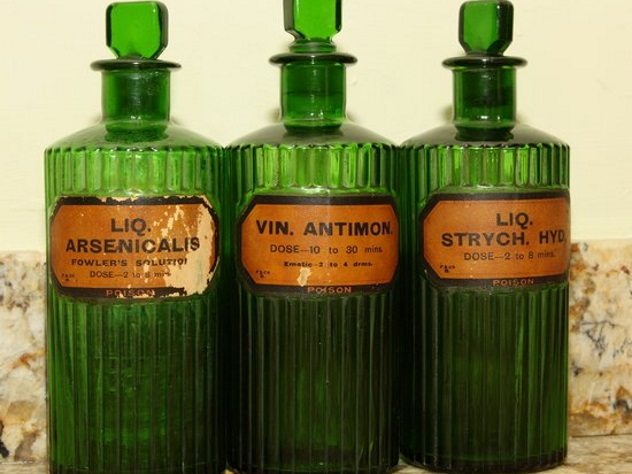
Yes, you read that right. The next weird, crazy, odd medicine on the list is none other than arsenic. Arsenic is a natural element with an atomic weight of 33. Even though people knew it was a highly toxic poison, through a good chunk of the 1900s, people used it in an attempt to cure a gazillion different conditions, most notably syphilis. Along with mercury, arsenic was, for a long time, thought to be one of the best defenses against syphilis, though both substances could kill the patients they were intended to treat, unfortunately. It wouldn’t be until the 1940s that penicillin would be introduced, and arsenic would fall out of fashion. However, it was still recommended to treat dermatological problems up until the 1960s.[7]
In an interesting turn of events, while arsenic didn’t actually work well for any of the things it was intended to treat, it’s actually now finding a new resurgence in popularity as a possible cancer treatment. It’s showing a bit of promise as an agent, not to treat conditions of the skin by dousing yourself in poison but of targeted cancer treatment.
3 Radioactive Juice
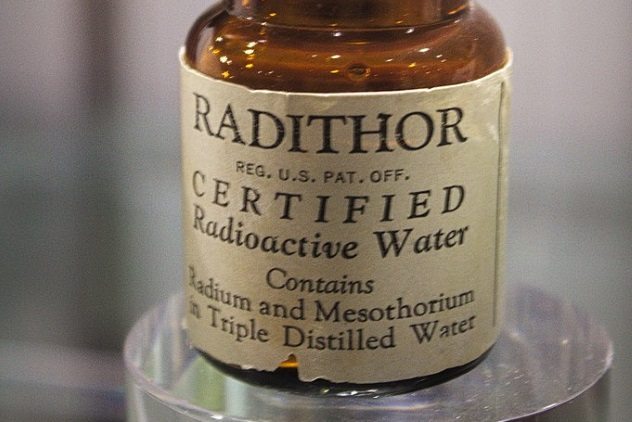
Radithor was the trade name. Really, it was just the brand-name selling of radioactive quackery in the form of radioactive water or juice. The early 1900s was an era of quackery of all sorts, from electrocution to promises that radioactive everything could solve any and all problems in your life. A Harvard dropout named William Bailey was one of the first to really jump on this particular train of quackery. Not only did Bailey think that cancer could be cured by doses of radiation, but he also prescribed radioactive doses for illnesses like anemia and depression.[8]
Couple this with the assumption that radium was what brought about the curative properties of spring water, and it was on like Donkey Kong. Everyone believed that liquids with small doses of radium in them had curative properties. People were even buying devices to make sure their radium was more freshly put into their water, as radium decays very quickly in water.
A man named Eben Byers took this logic to its extreme, taking massive doses of Radithor. By the 1930s, his bones, particularly his jaw, had almost completely decayed. Byers had abscesses in his brain and holes in his skull and eventually died on March 31, 1932. He was buried in a lead-lined coffin.
2 Mercury
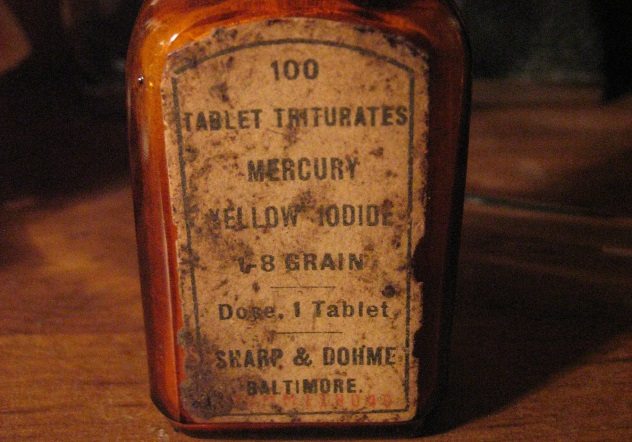
The early 1900s was a time for profit-motivated experimentation, as has been evidenced by so many items on this list, and the next example is no different. Whether people were just after a buck or actually, genuinely believed they were helping other people is generally up for debate, but one thing is for sure: Some odd and obviously dangerous stuff was tried.
Mercury is one of the most poisonous substances known to man and completely messes up anyone who comes into contact with it. Mercury can cause sickness, nausea, vomiting, metallic taste, seizures, death, coughing, hearing loss, and a slew of other horrible things. But still, somehow, people found a way to consider it a fit treatment for a wide range of illnesses and ailments, from scraped knees to skin disease, during the 20th century.
But most of all, mercury was used as a cure for none other than syphilis. Mercury is in absolutely no way effective against syphilis, unless, of course, it kills the person with syphilis before they can spread the disease. That’s about it. Tragically, mercury made a lot of people sick and killed many others in its long tenure as history’s most poisonous medicine.[9]
1 Urine Therapy

The number-one odd medical practice of the 1900s actually still has a mild following and is unfortunately enjoying a bit of resurgence today, and it’s called urine therapy. One specific website about urine therapy says the following:
For almost the entire course of the 20th century, unknown to the public, doctors and medical researchers have been proving in both laboratory and clinical testing that our own urine is an enormous source of vital nutrients, vitamins, hormones, enzymes and critical antibodies that cannot be duplicated or derived from any other source. They use urine for healing cancer, heart disease, allergies, auto-immune diseases, diabetes, asthma, infertility, infections, wounds and on and on—yet we’re taught that urine is a toxic waste product. This discrepancy between the medical truth and the public information regarding urine is ludicrous and, as the news releases you’ve just read demonstrate, can mean the difference between life and death to you and to your loved ones.
Now, of course, we don’t believe any of this. There is no massive conspiracy against you to hide the truth of urine therapy in an effort to coax you out of your money; you’re fine. But urine therapy had a lot of backing throughout the 1900s and has fallen in and out of fashion a few times.
Urine therapy is basically where someone either applies their own urine to their skin or consumes it in an attempt to cure a wide variety of ailments, and it has absolutely zero scientific backing.[10]
I like to write about dark stuff and history. This article will be shared on my Facebook pages, Serial Killer Memes, Murderworks Horror, Beautifully Disturbed, and more.
Read about more crazy medical treatments from history on 10 Ancient Medical Practices We Thankfully Abandoned and Top 10 Bizarre Ancient Roman Medical Treatments.


